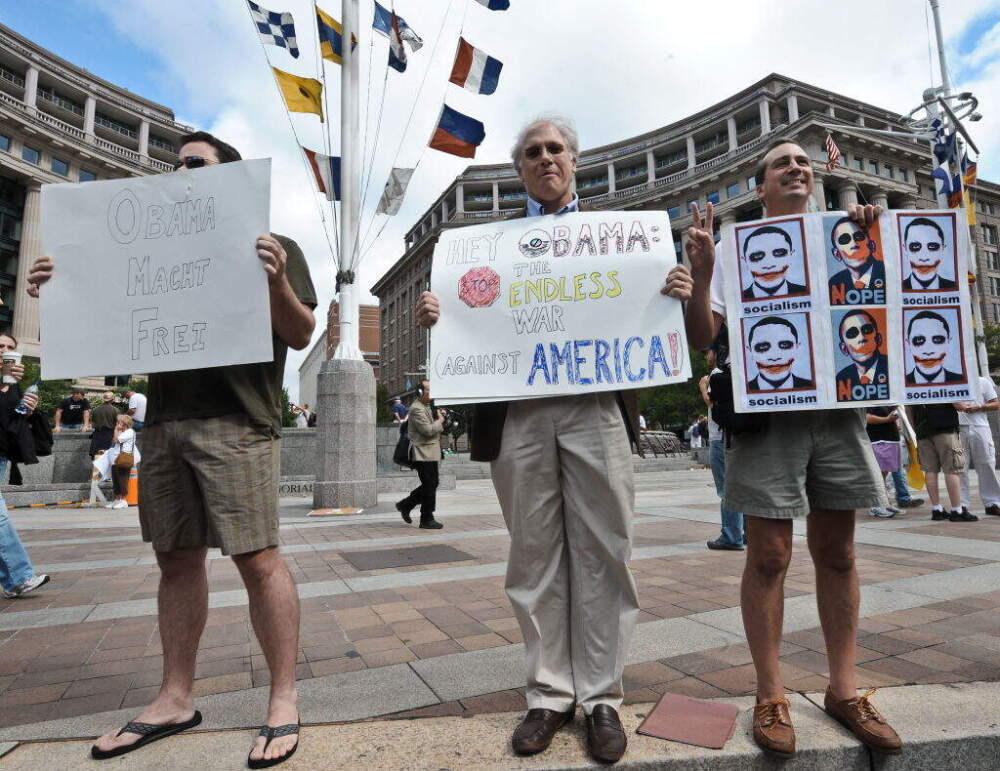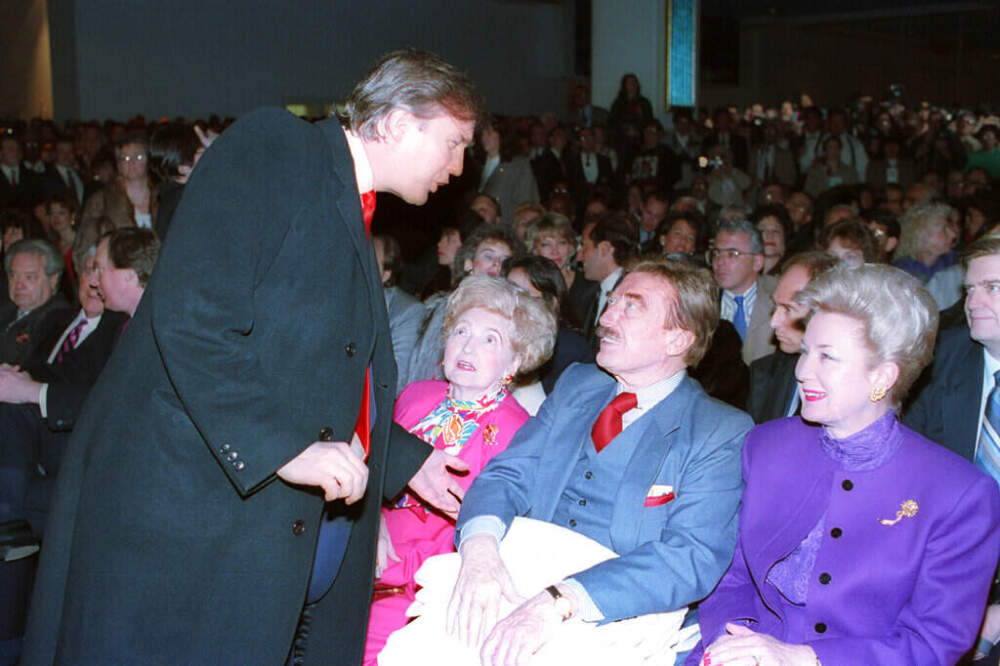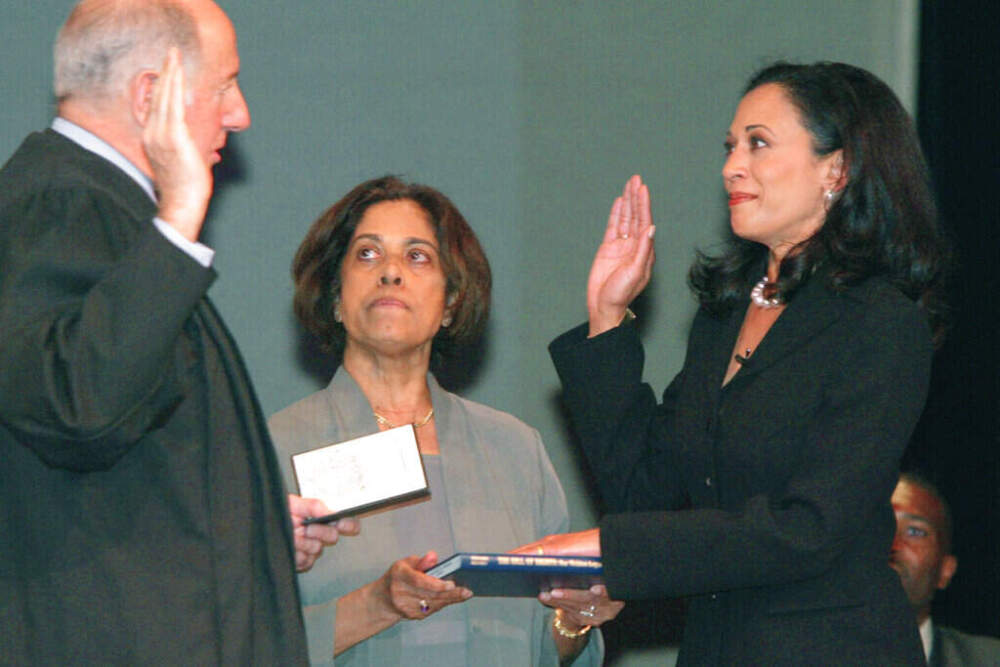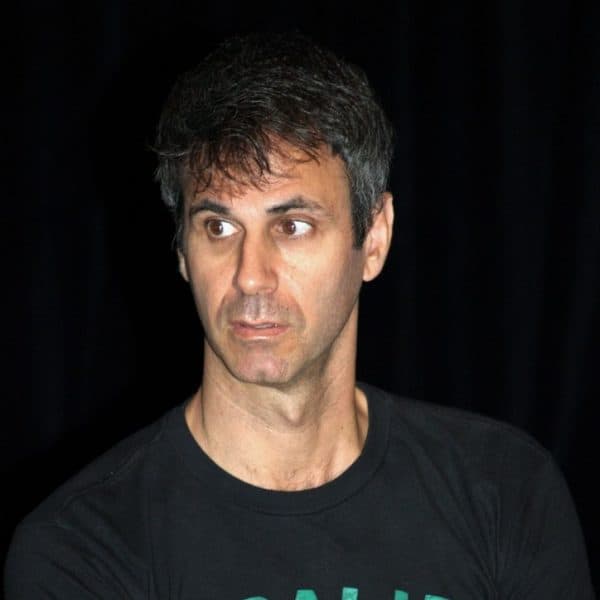Advertisement
Commentary: The Fifth Estate
Let us hold fast to the politics of mercy

I’ve been waking up a lot in the middle the night. Maybe that’s something we have in common. I wish I could tell you that I’m having deep thoughts, making sense of things, devising a plan of action. I’m not. I just lie there in the dark, listening to my little house make its noises of age and disrepair.
Mostly, I find myself thinking about cruelty and mercy.
I think about how these impulses battle inside each of us, and how that battle has exploded into a national crisis — how divided and angry we’ve become as a people, despite the unprecedented abundance we enjoy.
I think about what this country could achieve if we summoned the mercy to protect for the most vulnerable among us, to feed the poor and care for the sick.
Then I think about what America could become if we descend further into cruelty. I think about who’s going to get hurt.
Election Day has finally arrived. For all the polling and prognostication, nobody has any idea what’s going to happen. The only thing we know for sure is that one candidate, if he loses, will not accept the result. He will almost certainly seek to incite violence — again. Already, he is deploying disinformation and legal challenges.
Whatever the outcome, in other words, we are no longer citizens of a peaceful democracy.
This comes as no shock to those Americans whose ancestors were slaughtered, enslaved and lynched on this soil. Nor to those who, in our age, have been wrongly incarcerated, choked, deported, demonized. The lucky rest of us — cosseted in our layers of privilege — are simply catching up to an ancient cruelty.
It is, of course, absurd that one man would have the power to wreak havoc on an entire country, based solely on his injured pride. But Donald Trump has never acted alone. He was born into wealth, underwritten by his father, subsidized by foreign oligarchs and resuscitated from reputational and financial ruin by the cynical Cyranos of Reality TV. As a politician, he’s been enabled by millions of Americans, from the true believers who buy his merch, to the politicians who once condemned him to the Fox News hosts who now promote his He-Man cos-play.
Advertisement
All these folks are human beings, with yearnings and fears, beloveds, sacred inner lives. It is worth pondering what Trump does for them? Asking why, exactly, they find community in cruelty?
I’ve written before about the hate mail I get from right-wing readers. As far back as 2010, I was receiving emails calling me a “lowly, cowardly insect,” suggesting I be sent to “a work camp,” threatening to kill me.
People would often gasp when I read these letters.

But cruelty, it turns out, is a contagion. And human beings, if exposed to cruelty for long enough, build up immunity. After years of listening to enraged demagogues—on the radio, on the internet—it did not strike my correspondents as even mildly inappropriate to wish death upon a stranger.
They weren’t talking to a human being. They were talking to an insect.
I keep thinking about mercy, too.
How do we learn to be compassionate — to ourselves, and thus to the world? How do we develop the capacity to imagine another person’s pain, to accept that pain as a moral reality that involves us, and calls upon us to offer sympathy and comfort?
It must be from our mothers, those soft planets of mercy around whom we orbit in our most vulnerable years — if we’re lucky.
I think about the leaders who have exhibited this capacity for mercy, however imperfectly: Bill and Hillary Clinton, Barack Obama, Kamala Harris. What do all of them have in common? They all revered their mothers.
If America is to be rescued over the next few days, or years, it will be the love of mothers and caretakers that do the rescuing.
It is so hard to live in the pain of human consciousness, to bear our confusion, our sorrow. But what happens if we don’t receive enough love?
Donald Winnicott, a British psychiatrist who studied maternal attachment, wrote about he called the “good enough mother.” The idea was that mothers can’t be perfect, and shouldn’t strive to be. They simply need to be “good enough” to help their children bear the world’s imperfections.
Without this support, the child is unable to endure failure and disappointment or learn from mistakes. Humiliation never becomes humility.
You almost never hear anything from Donald Trump about his mother. For Trump, it’s all about his father, whom he revered, and who offered him only two options in life: He could be a killer or a loser.

Trump has lost a lot. He has gone bankrupt over and over. His marriages have failed. He has been arrested and convicted of financial crimes, found liable for sexual assault. After one disastrous term in the White House, he was tossed out of office.
Amid all of this, his political message has remained the same: America is a victim. America is a garbage can. America is an apocalyptic hellscape poisoned by radicals and immigrants. The moment he takes office, America will be strong and smart again.
He lives not in the realm of policy, but magical thinking.
It is hard to extend mercy to someone who enjoys hurting others. But I see Trump as a man in pain, which he has crushed, over his terribly sad lifetime, into a diamond of cruelty.
When Trump first ran for president, lots of people assumed he was too cruel to be taken seriously. He declared Mexicans rapists. He bragged about grabbing women by their genitals. He mocked people with disabilities. Instead, he wound up being patient zero of the cruelty contagion. The violent ideation that festered in the netherworld of talk radio hosts, white supremacists and internet trolls, became the central feature of his candidacy.
It is hard to extend mercy to someone who enjoys hurting others. But I see Trump as a man in pain, which he has crushed, over his terribly sad lifetime, into a diamond of cruelty.
His success shifted the permission structure. For the first time in decades, it became acceptable for the soldiers to batter peaceful protestors, for border agents to put children in cages and tear families apart. For the first time ever, a sitting president urged his super fans to storm the Capitol.
Trump’s fantasies have become increasingly explicit. He now conjures images of “illegals” slicing innocent white people to ribbons in their own kitchens, of guns aimed at a political rival’s face, of journalists being shot. It excites him to talk about hurting others. And it excites his supporters.
This election is best understood as a referendum on cruelty. Whatever meager policy discussion has seeped through the noxious cloud of threat and accusation, the real question on the ballot is this: How much cruelty will be allowed in America?
Can the government force women to carry their rapist’s child to term? Can women be denied life-saving medical care after a miscarriage? Can police officers brutalize suspects? Can soldiers shoot protestors? Can deputized cops round up millions of undocumented workers and send them to detention camps?
None of these questions are hypothetical.
I believe Kamala Harris will be a terrific president because she wants to comfort the afflicted, to provide working families child care, mortgage assistance, tax credits, to fight price gouging and corporate greed. She also believes in science and diplomacy.

At times, I can hear Kamala the Politician, reciting her focus-grouped phrases. But when people tell stories about her—as a friend, a sister, a stepmother—they cite the depth of her compassion, not the sweep of her power.
When she proposes making elder care more affordable, she speaks about her own struggle to care for her cancer-stricken mother, to help her get dressed, to prepare her meals.
There is mercy within her. What could matter more in a leader?
It would be comforting to imagine Trumpism as a kind of fever that will, at last, be broken. But even if he is defeated at the ballot box, the cruelty he has unleashed will not simply vanish. He and his followers will remain a part of America, cloistered in their rage.
Whatever happens in the days and weeks to come, the only solution is to offer our country what we would offer our own children: The courage to stand up in the face of cruelty, and the patience to resist panic or apathy.
We must hold fast to the rock of mercy. That is what I think, when all else fails, in the sleepless dark. It is not a magic cure. But it is the only way to imagine a more compassionate way of living in the world.
Follow Cognoscenti on Facebook and Instagram. And sign up for our weekly newsletter.
